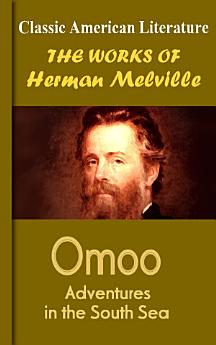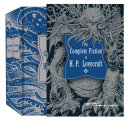Omoo, Adventures in the South Seas: Works of Melville
About this ebook
MY RECEPTION ABOARD
IT WAS the middle of a bright tropical afternoon that we made good our escape from the bay. The vessel we sought lay with her main-topsail aback about a league from the land, and was the only object that broke the broad expanse of the ocean.
On approaching, she turned out to be a small, slatternly-looking craft, her hull and spars a dingy black, rigging all slack and bleached nearly white, and everything denoting an ill state of affairs aboard. The four boats hanging from her sides proclaimed her a whaler. Leaning carelessly over the bulwarks were the sailors, wild, haggard-looking fellows in Scotch caps and faded blue frocks; some of them with cheeks of a mottled bronze, to which sickness soon changes the rich berry-brown of a seaman's complexion in the tropics.
On the quarter-deck was one whom I took for the chief mate. He wore a broad-brimmed Panama hat, and his spy-glass was levelled as we advanced.
When we came alongside, a low cry ran fore and aft the deck, and everybody gazed at us with inquiring eyes. And well they might. To say nothing of the savage boat's crew, panting with excitement, all gesture and vociferation, my own appearance was calculated to excite curiosity. A robe of the native cloth was thrown over my shoulders, my hair and beard were uncut, and I betrayed other evidences of my recent adventure. Immediately on gaining the deck, they beset me on all sides with questions, the half of which I could not answer, so incessantly were they put.
As an instance of the curious coincidences which often befall the sailor, I must here mention that two countenances before me were familiar. One was that of an old man-of-war's-man, whose acquaintance I had made in Rio de Janeiro, at which place touched the ship in which I sailed from home. The other was a young man whom, four years previous, I had frequently met in a sailor boarding-house in Liverpool. I remembered parting with him at Prince's Dock Gates, in the midst of a swarm of police-officers, trackmen, stevedores, beggars, and the like. And here we were again:—years had rolled by, many a league of ocean had been traversed, and we were thrown together under circumstances which almost made me doubt my own existence.
But a few moments passed ere I was sent for into the cabin by the captain.
Ratings and reviews
About the author
Works of Melville
Herman Melville (August 1, 1819 – September 28, 1891) was an American novelist, short story writer, and poet from the American Renaissance period. Most of his writings were published between 1846 and 1857. Best known for his sea adventure Typee (1846) and his whaling novel Moby-Dick (1851), he was almost forgotten during the last thirty years of his life. Melville's writing draws on his experience at sea as a common sailor, exploration of literature and philosophy, and engagement in the contradictions of American society in a period of rapid change. The main characteristic of his style is probably pervasive allusion, reflecting his written sources. Melville's way of adapting what he read for his own new purposes, scholar Stanley T. Williams wrote, "was a transforming power comparable to Shakespeare's".
Born in New York City as the third child of a merchant in French dry-goods, Melville ended his formal education abruptly after his father died in 1832, shortly after bankruptcy left the family in financial straits. Melville briefly became a schoolteacher before he took to sea in 1839. This voyage to Liverpool as a common sailor on a merchant ship became the basis for his fourth book, Redburn (1849). In late December 1840 he signed up aboard the Acushnet for his first whaling voyage, but jumped ship eighteen months later in the Marquesas Islands. His first book, Typee (1846), a fictionalized account of his life among the natives there, became such a success that he worked up a sequel, Omoo (1847). The same year Melville married Elizabeth Knapp Shaw; their four children were born between 1849 and 1855.
In August 1850, Melville moved his family to a farm near Pittsfield, Massachusetts, where he established a profound but short-lived friendship with Nathaniel Hawthorne. Moby-Dick was published in 1851 to mixed reviews, but proved a commercial failure. Less than a year later, Melville's career as a popular author effectively ended with the cool reception of Pierre. The next years he turned to writing short fiction for magazines, such as "Bartleby, the Scrivener" and "Benito Cereno." After the serialized novel Israel Potter was published as a book in 1855, the short stories were collected in 1856 as The Piazza Tales. In 1857, Melville voyaged to England and the Near East; twenty years later, he worked his experience in Egypt and Palestine into an epic poem, Clarel: A Poem and Pilgrimage in the Holy Land (1876). In 1857 he published The Confidence-Man, his last prose work during his lifetime. Having secured a position as Customs Inspector, he moved to New York. He turned to poetry, the first example of which is his poetic reflection on the moral questions of the Civil War, Battle-Pieces and Aspects of the War (1866).
In 1867 his oldest child, Malcolm, died at home from a self-inflicted gunshot. In 1886 Melville retired as Customs Inspector and privately published two volumes of poetry. During the last years of his life, he returned to prose again and worked on Billy Budd, Sailor. Left unfinished at his death, it was eventually published in 1924; it was adapted as a Broadway stage play and as an English opera in 1951, and a decade later as a film. Melville's death in 1891 from cardiovascular disease subdued the reviving interest in him. The centennial in 1919 of his birth was near the starting point of the "Melville Revival," as scholars returned to his work and life, and Melville's writings have been appreciated as world classics.











